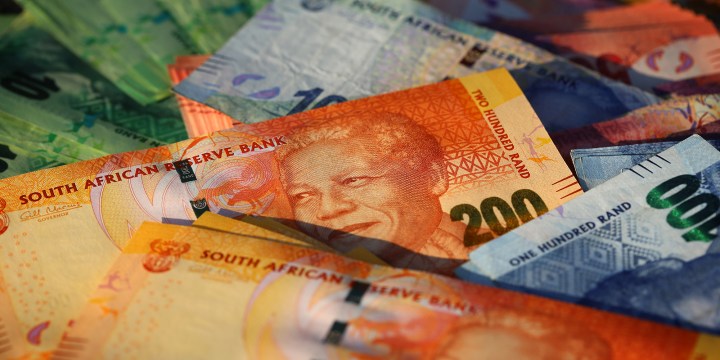ANTI-CORRUPTION WATCH
Civil society launches watchdog to monitor implementation of Political Party Funding Act

On Tuesday a coalition of civil society organisations launched a watchdog to monitor the compliance and implementation of the Political Party Funding Act.
There’s a long, “deeply entrenched” political culture of donating money in exchange for tenders, which is important for us to monitor, said Neeshan Balton, executive director of the Ahmed Kathrada Foundation, at the launch.
The act, which came into effect on 1 April 2021, “ushered in a new era in our democracy. The act creates a much-needed transparency framework that aims to ensure that political parties disclose information about who funds them,” reads the coalition’s statement.
The act prohibits donations to parties by foreign governments or agencies, foreign persons or entities, organs of state or state-owned enterprises. It makes provision for the regulation, on disclosure, of accepted donations and assigns powers and duties to the Independent Electoral Commission (IEC) to administer and manage funds.
With the testimonies about how businesses such as Bosasa and families such as the Guptas used their money to influence what happens in government being revealed at the Zondo Commission, this act demonstrates why it’s important for party donors to be public knowledge, said Robyn Pasensie of My Vote Counts.
It’s especially crucial to monitor how this act is implemented because voters have a right to know where parties get their money from, said Busi Mtabane from the Right2Know Campaign. It isn’t fair that voters have to vote while being kept in the dark about the party’s donors, she said.
The coalition, which also consists of Corruption Watch and Open Secrets, pledges to:
- Monitor and evaluate compliance with the funding disclosure process;
- Make information on who funds and influences political parties more accessible to the public;
- Provide voters with information to help them make informed voting decisions;
- Advocate around the limitations in the existing Political Party Funding Act that hamper its ability to ensure that political parties are transparent and accountable; and
- Work towards changing our political space so that it is not influenced by money and narrow interests but is owned by all.
Ahead of the first set of party funding disclosures by political parties under the act, the first task of the coalition is to focus its campaigning on ensuring the act is implemented effectively, does what it purports to do and supports the IEC in its mandate to administer the act, ensuring that it is adequately capacitated, according to its statement.
In terms of the act, the IEC must report on private political donations annually. This report, together with the Auditor-General’s opinion, must go to the National Assembly when the IEC submits its annual report.
The act was passed by Parliament in 2018 and assented to by the President on 23 January 2019, but Cyril Ramaphosa was mum on when it would come into effect.
Four months before the act had been gazetted, Corruption Watch wrote to the Presidency, urging the setting of a starting date for the Political Party Funding Act before 1 April 2021. Failure to do so would have seen the President hauled to court by Corruption Watch to compel the commencement.
On the act being gazetted, Marianne Merten wrote:
“If President Cyril Ramaphosa gazettes the Political Party Funding Act to take effect from 1 April 2021, the IEC has until 30 September 2022 to table the first private political party funding report in Parliament.”
Dikgang Moseneke, the former chief justice, recently released a report after he held an inquiry into whether October’s municipal elections will be free and fair during the Covid-19 pandemic.
Moseneke recommended that the elections be postponed until no later than February 2022.
Balton said the coalition had a “huge job” of ensuring compliance with this legislation. “As the first set of reports are published, we have to note the best party report and highlight it and say why it should be followed.”
What this coalition wants to see is a democracy that works in the interest of the people and the work it does will be instrumental in ensuring that, said Pasensie. DM
Organisations and individuals can join the coalition via this link.



 Become an Insider
Become an Insider
Comments - Please login in order to comment.